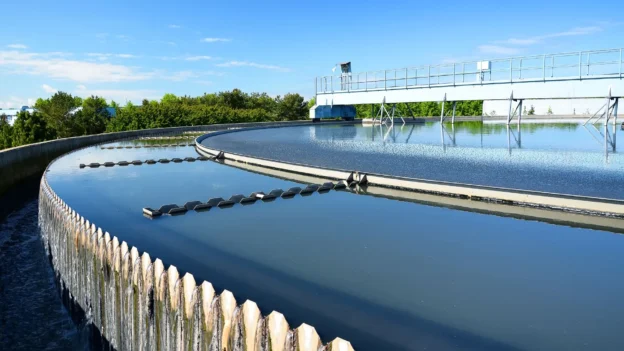Increasing pressure on water resources water resources due to industrial activity has prompted the search for sustainable technologies for wastewater treatment. Researchers at Dalhousie University, in collaboration with Shenyang Agricultural University, have developed an innovative solution based on agricultural and forestry residues to combat highly toxic pollutants such as pentachlorophenol.
Biomass converted into magnetic filters
Using a hydrothermal carbonization process, the researchers transformed flax fibers and eucalyptus sawdust into iron-enriched hydrocarbons. This process imparts magnetic properties to the materials, allowing their subsequent separation from the treated water by means of magnets, avoiding the use of conventional filtration.
The result: magnetic filters or bioadsorbents that are not only efficient, but also reusable. In laboratory tests, flax-based adsorbents were able to remove up to 95% of the pentachlorophenol present in contaminated samples, while eucalyptus-based adsorbents achieved an efficiency of around 89%. Both materials maintained their performance in six consecutive reuse cycles.
Efficient adsorption, low cost and no environmental risk
One of the highlights of the study is the stability of the compounds. No iron leakage was detected during use, ensuring safe and environmentally friendly operation. This effective adsorption capacity, combined with their low production cost, positions these materials as an attractive alternative for water purification. water purification in industrial and agricultural environments.
In addition to capturing pollutants, the technique promotes the valorization of lignocellulosic waste, in line with the principles of circular economy. The incorporation of iron during the process improves the porosity and functionality of the materials, optimizing their capacity to capture persistent substances such as PCP.
More sustainable water management
This breakthrough demonstrates how organic organic waste can become a key technological resource to address environmental challenges. Magnetic separation of adsorbents reduces the infrastructure required for implementation, opening the door to scalable solutions in wastewater treatment contexts.
With this development, the researchers aim to offer a technology that combines sustainability, efficiency and industrial applicability, laying the foundation for more resilient and efficient water management. The study has been published in the scientific journal Sustainable Carbon Materialswhich supports the robustness of the findings and their relevance within the international research community.
Source and photo: Shenyang Agricultural University via EurekAlert

